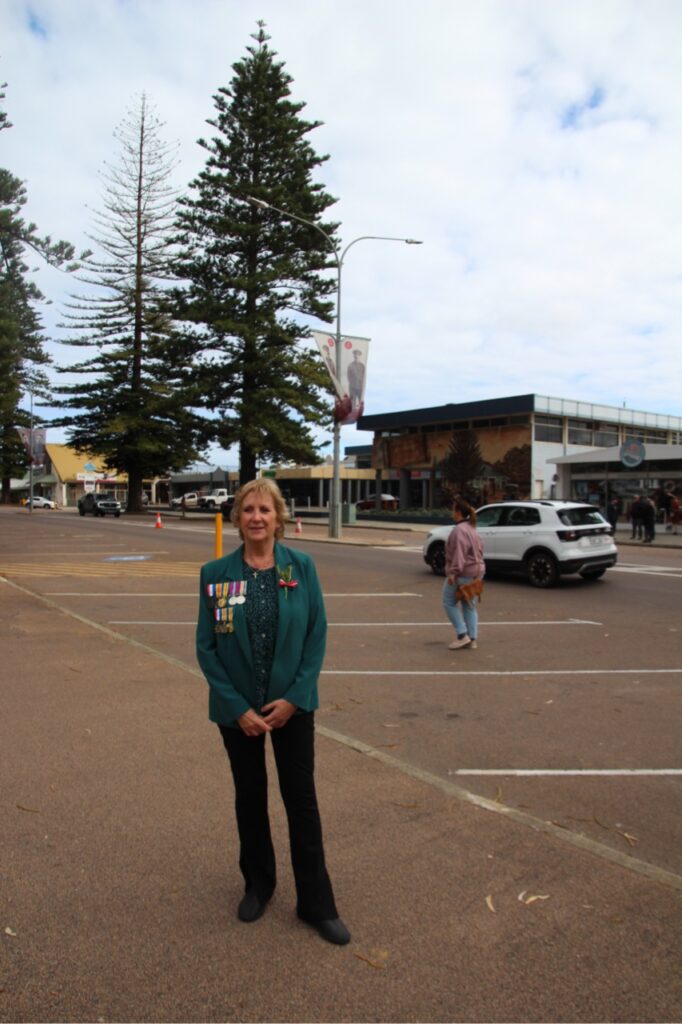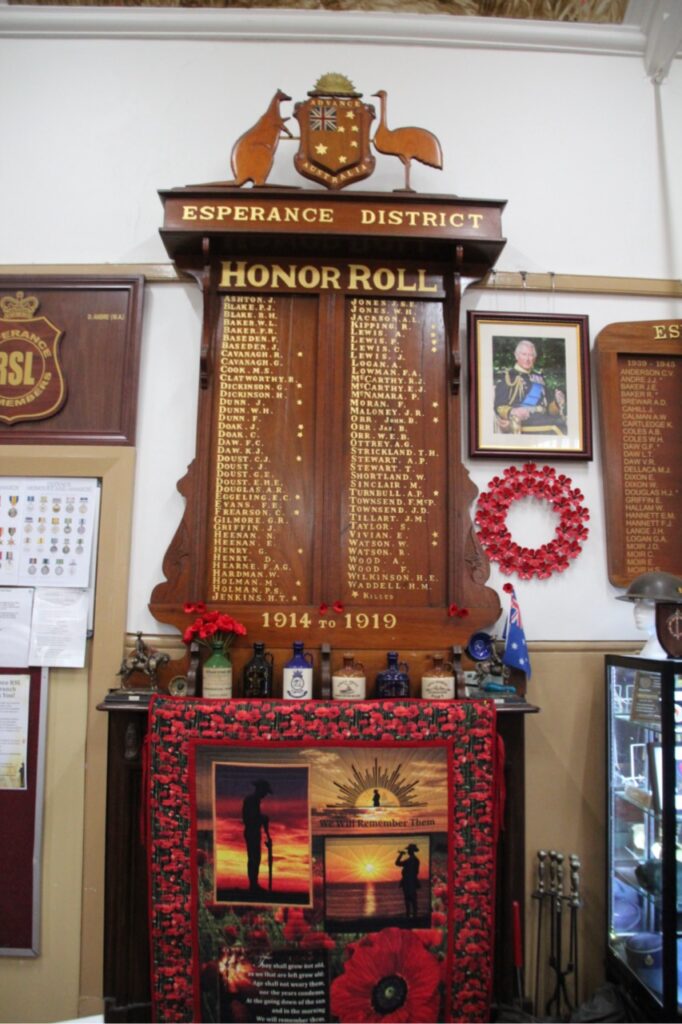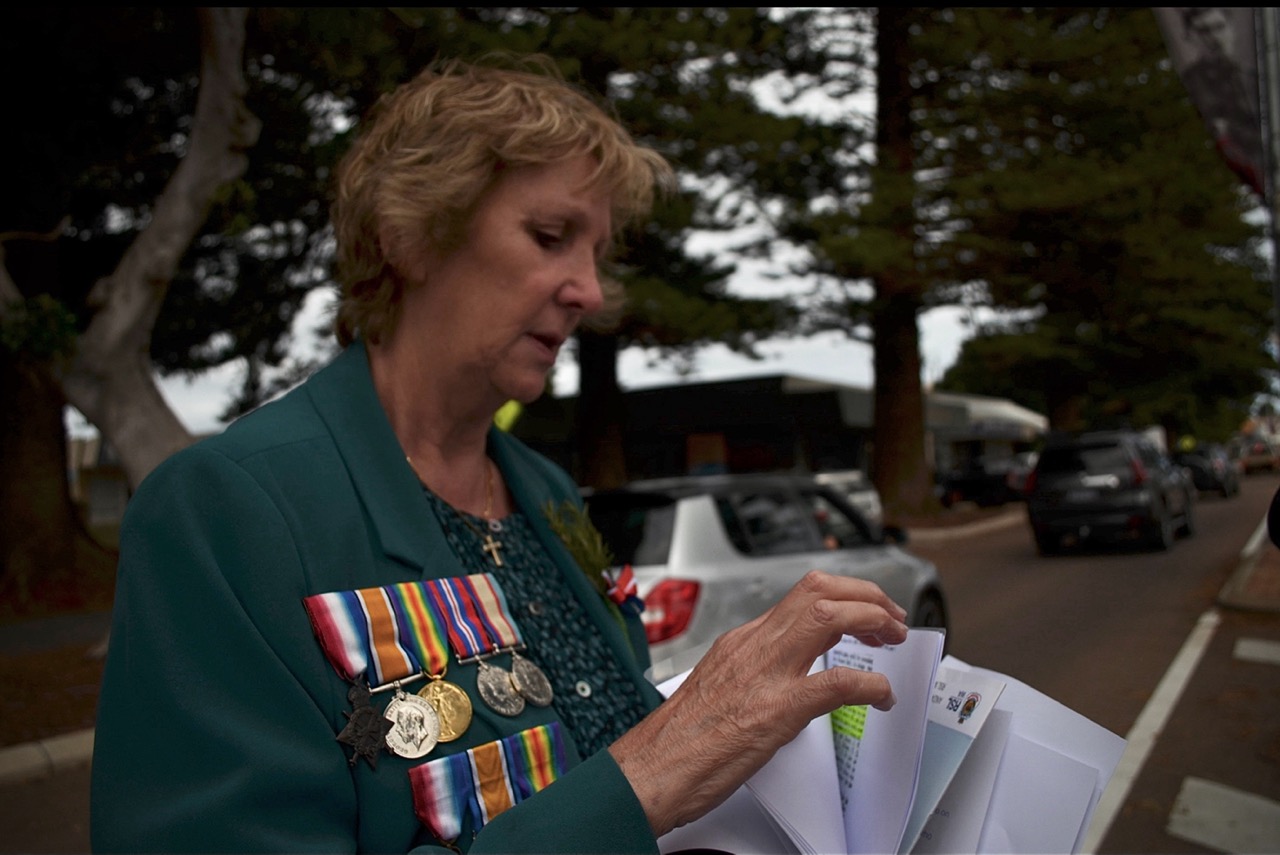It was only Michelle James’ second time visiting Esperance but as she partook in ANZAC Day commemorations, she was overwhelmed by emotion and family pride.
“I looked up this morning and there’s my grandfather and his oldest brother on the flag [on Dempster Street],” James said.
“I just cried and cried.”
For the last few years Ms James has been investigating her family history.

She knew Esperance was where her great grandparents had lived but she never anticipated the stories of courage and tragedy that would connect her to this town.
Ms James first visited Esperance in February 2024 to see her great grandparents’ old houses but unbeknownst to her she would discover a deeper history.
“I was invited to the RSL and there’s a plaque there with the Esperance boys who served and if they didn’t come home there’s a little asterisk next to their name.” she said.


“I learned about my great uncle, Clarence John Doust, who died in Belgium in WWI at just 21.”
Clarence Doust was born in Esperance in March 1896.
He enlisted in the Australian Navy two days after his 18th birthday and became part of the Sydney Battalion.
Doust was the stoker aboard HMAS Encounter, but nearly a year after WWI began, he abandoned his post and went to Belgium with the army.
Clarence died on October 19, 1917.
Records from the Australian War Memorial suggest his body was either never recovered or he was buried without identification.
Clarence’s death still has a profound effect on his family.

His story, like many others from WWI, illustrates the intergenerational consequences of war.
Data on the effects of WWI are limited, though research on veteran trauma from wars since, renders a disturbing truth.
Veteran welfare studies have shown high rates of PTSD and alcohol dependency among ex-Australian military personnel.
The Centre for Military and Veterans Health found many veteran’s children suffered mental health issues, emotional dysregulation and loneliness.
The Australian War Memorial states over 61,000 Australians have died in war, primarily during WWI.
Ms James became teary while reflecting on Clarence’s hardship and bravery.
“It was the coldest winter in memory in 1917,” she said.
“Imagine being in the freezing water and the trenches – people have no idea of hardship these days.
“I really admire their determination and mateship.”
In 1919 Clarence’s mother and Ms James’ great grandmother, Kate Doust, unveiled the plaque that now hangs in the Esperance RSL.
At the time Mrs Doust said, “the nation should never forget these names.”
This ANZAC Day, wearing replicas of Clarence’s WWI medals and her grandfather’s war decorations, Ms James honoured her great grandmother’s words.
“Coming back today means a lot to me because it’s 100 years since she was in the committee… I thought I’d be here for her but also for Clarence,” she said.
“They shouldn’t forget their names, that’s why I’m here.”
Ms James’ family left Esperance in the 1930s but the Doust name lives on today.


